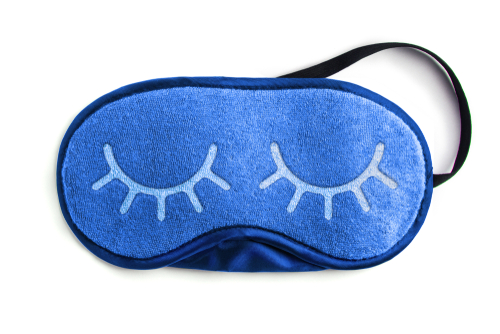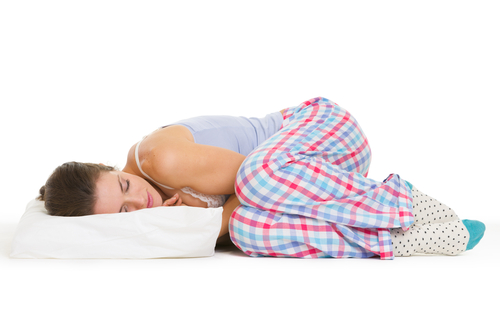Insomnia is a condition that affects millions around the world, yet so many people know very little about it and what causes it.
Those who suffer from insomnia deal with varying degrees of difficulty sleeping, ranging from difficulty falling asleep to waking multiple times during the night and being unable to get back to sleep.
In this blog post, we will explain some of the key symptoms associated with insomnia to help dispel some myths about what qualifies as a sign or symptom of this condition and how you can identify if you may be suffering from it. But first, see a doctor if you know you have severe insomnia or visit buydiazepamuk for medications to be delivered to your doorstep.

What is insomnia, and how it differs from other sleep disorders?
Insomnia is a chronic disorder characterised by difficulty falling asleep, difficulty staying asleep, or feeling unrested in the morning despite adequate opportunities for sleep. This can persist for weeks or even months at a time, and such chronic disruptions in sleep can cause significant long-term effects on both physical and mental well-being. While it is often confused with other sleep disorders like sleep apnea or restless leg syndrome, insomnia typically involves more subjective disturbances in the ability to fall asleep versus physical factors that impede healthy sleep. The distinction between insomnia and other sleep disorders is very relevant when considering potential treatments for these issues.
Common signs and symptoms of insomnia
Insomnia is a common sleep disorder characterised by difficulty falling asleep, arousal during the night, and poor sleep quality. Common signs and symptoms of insomnia may include the following:
- Difficulty falling asleep at night
- Frequent awakenings throughout the night
- Difficulty returning to sleep when awakened
- Early morning awakening with an inability to return to sleep
- Feeling unrested after waking up in the morning
- having trouble feeling alert and energetic throughout the day
Additionally, people with insomnia often report feelings of restlessness, sadness or depression during their waking hours. Fortunately, numerous treatment options are available to help individuals with insomnia get the quality rest they need.
Different types of insomnia and associated causes
Insomnia is a pervasive sleep disorder that can be split into three distinct types. Primary insomnia is caused by external sources such as stress and environmental changes. Secondary insomnia is linked to medical issues such as allergies, asthma, heartburn, or pain. Finally, as its name implies, comorbid insomnia occurs along with other conditions like depression, substance abuse, or a hormonal imbalance. All types of insomnia come with common signs and symptoms like difficulty falling asleep, frequent waking during the night, vivid dreams, daytime sleepiness, irritability and fatigue. Determining the source of an individual’s recurring sleeplessness can help them find effective ways to finally get some much-needed rest.
Misconceptions about Insomnia

While most of us are familiar with the term “insomnia”, many lack an understanding of what it means and how dangerous it can be. Unfortunately, this leads to several misconceptions about insomnia that aren’t true. For example, many people wrongly assume that insomnia is caused solely by stress when there are numerous contributing factors, including genetics and age-related health issues. Additionally, many believe that insomnia can be solved through medication alone- however, lifestyle changes such as avoiding caffeine or exercising more often may make all the difference. The bottom line? When it comes to understanding and treating insomnia, knowledge is power- so don’t assume you know what’s best until you understand all the facts!
Treatment options for managing insomnia
When it comes to managing insomnia, several effective treatment options are available. Behavioural therapies such as relaxation techniques, sleep hygiene and scheduling, cognitive therapy, and exercise can help reduce insomnia symptoms. Sleeping medications like benzodiazepines and non-benzodiazepines, such as zolpidem and eszopiclone, can also be used. However, they should be prescribed sparingly due to their potential for addiction. If your insomnia is caused by an underlying mental or physical health condition, treating that condition can also help provide relief from sleepless nights. Finally, in severe cases of chronic insomnia, some people may find relief with electrical stimulation therapy or hypnotherapy. It’s essential to consult with a doctor before attempting any of these treatments to ensure they are safe and effective for your needs.
Strategies for getting a better night’s sleep

If you’re suffering from insomnia, there are many practical strategies you can use to help improve your sleep habits. One of the better ways to achieve a better night’s sleep is to maintain a regular sleep schedule. This means setting an established bedtime and wake-up hour and sticking to it as much as possible. In addition, avoiding caffeine and other stimulants close to bedtime can help reduce tossing and turning while in bed. Also, creating a calming evening routine before going to sleep can relax the body and mind, promoting peaceful slumber. Finally, staying away from electronics at least thirty minutes before bedtime can help ensure you get a good quality of sleep—which will have lasting positive effects on your overall health and well-being.
Conclusion
Insomnia is a common disorder that can have long-term effects on one’s overall quality of life. Therefore, it is essential to recognise the signs and symptoms of this sleep disorder so that proper treatment and management strategies may be adopted. In addition, awareness of the types of insomnia, its causes, and associated myths helps paint a clearer picture of the issue. People should also consider improving their sleep habits and routines for more restful nights. Finally, keep in mind that if natural remedies for insomnia do not offer relief, visiting a medical professional should be the next step in managing this potentially debilitating disorder.
The beauty benefits of herbs and spices





